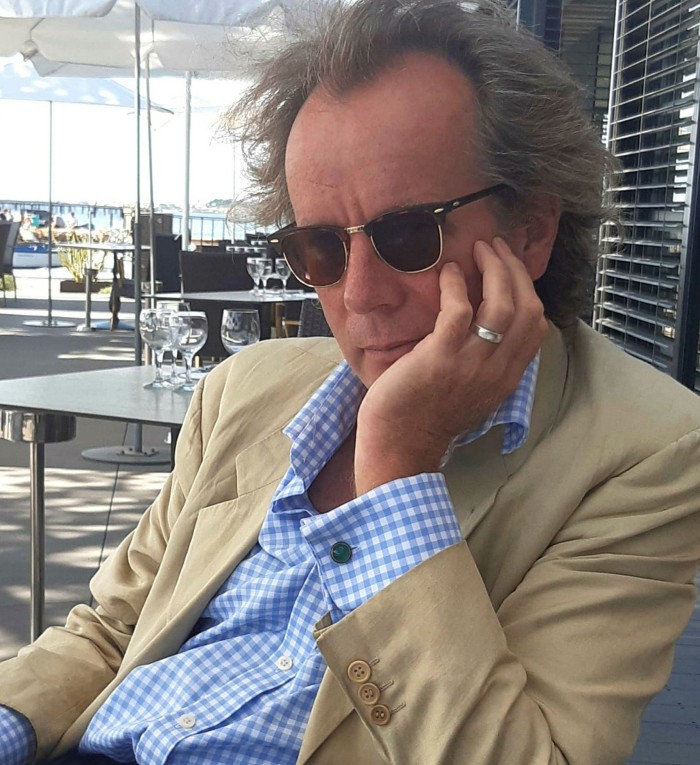Mark Huband, journalist and poet 1963-2021

Roula Khalaf, Editor of the FT, selects her favourite stories in this weekly newsletter.
Mark Huband, who has died aged 58, was a foreign correspondent, poet and business intelligence executive who stood as a Labour party candidate in the UK’s 2019 general election. He published eight books on Africa, the Middle East and global affairs, a memoir, and five pamphlets of poetry.
In April 1990, while working as a stringer for the Financial Times, he was the first journalist behind rebel lines in Liberia’s brutal civil war — not by design, but because he was kidnapped and held for five days after the rebel leader Charles Taylor’s forces ambushed the freight train on which he was travelling. He had not been looking for trouble. While other journalists had set off by bush taxi in search of the rebels, Huband — commissioned by his editor at the FT to report on an iron ore project — went in the other direction. His coolly written dispatch foreshadowed the horror of that conflict (“A pig was sniffing the upright curve of a picked-clean spinal cord protruding from a pair of trousers”) and revealed his instinct for the surreal. In one incident he described how Taylor invited him for breakfast in the bush, apologising that “there’s no scrambled eggs.”
Huband continued to cover Liberia, turning his experiences into a book studying the causes and conduct of the war, and later an epic poem.
Deeply emotional and ferociously intelligent, he was a meticulous reporter with great powers of description. Ann Treneman, foreign editor of the Observer when he reported for the paper in the 1990s, described him as “both intellectually and physically brave — willing to take risks that others wouldn’t”. His fellow journalist and close friend, Stephen Smith, said: “He was not someone who could report a story and then forget about it. Everything went very deep and close to the bone.”
In Somalia, gunmen hid him and Smith under blankets and whisked them through the streets of Mogadishu to interview Mike Durant, a US helicopter pilot who had been shot down in an incident later depicted in the film Black Hawk Down. Huband was among the first journalists to enter Rwanda when the genocide started in 1994. Writing for the Guardian with restrained anger, he highlighted what he saw as the hypocrisy of western countries who did nothing to stop the slaughter of Rwandan Tutsis while foreign evacuees “packed their children, pet dogs, teddy bears and suitcases into trucks”. The psychological scars of covering Rwanda never disappeared.
Born in Yorkshire, Mark Christopher Huband grew up in Essex, a restless child and adolescent, frequently hanging out with what he described in a memoir as a gang of “skinny white kids”. He was educated at Burnt Mill Comprehensive School in Harlow and the University of Manchester. After an MA in Journalism at Cardiff University, he set off in 1990 to freelance in Abidjan where he met his Ivorian wife, Marceline, an expert in African tribal art, at a jazz club. They married in Paris, and went on to have two children, Olivier and Zara. His family always provided a safe place to which he could retreat.
After leaving Africa, Huband reported for the FT from the Middle East where he was one of the first to predict the rise of al-Qaeda, notably in his 1998 book Warriors of the Prophet. After 9/11, he became the FT’s security correspondent, delving into the murky world of intelligence and terrorism.
By 2005, he had become disillusioned with journalism, which he had begun to find shallow. For a while he worked for the business consultancy Hakluyt before founding Livingstone & Company in 2008, providing bespoke intelligence for businesses investing in high-risk countries, especially in Africa. Every Christmas, he hosted a dinner at The Travellers Club in London, where senior business executives, spies and journalists rubbed shoulders, the breadth and eminence of his contacts on display.
He was effortlessly adept at reinventing himself. In his mid forties he formed a rock band in which he sang and played rhythm guitar. Despite the fact that none of the band were professional musicians they convinced a promoter to arrange a European tour in 2008, culminating in a sellout performance in Italy.
Huband’s passions were his family, politics and poetry. He and Marceline moved to the Cotswolds in 2011, where he joined the local Labour party. Furious about social injustice and about Brexit, he stood for parliament in North East Somerset, tapping his many friends for a tenner to fund his campaign. He doubled Labour’s vote, coming in second to the Conservative, Jacob Rees-Mogg.
In recent years, he spent much of his time walking and writing poetry. He felt most at home in the mountains, and last summer walked 350km across the Pyrenees alone, sleeping in a one-man tent. His book-length poem Agony explored the roots of genocide from the Incas in 16th-century Peru to the killings in Rwanda that he had witnessed. In poetry, he finally found a way of expressing himself with the full — and at times painful — intensity that he experienced the world.
Comments